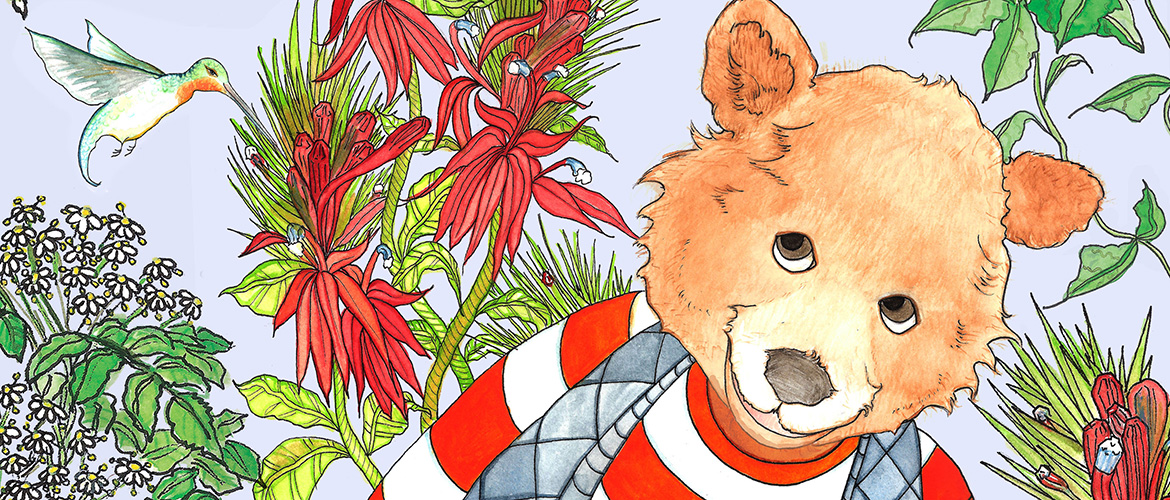Our Children's Book, The Puddle Garden -- an Update of Sorts

This morning, Beren and Rachel went off to a kid-and-parent art class, and I stood over the kitchen sink for several hours.
First, doing the dishes to clear space. Then, cleaning seeds by the dozen and hundred.
Pawpaw, persimmon, nannyberry, hawthorn and others besides.
I thought about the delicious fruits each seed had originated in, as I scrubbed and scraped away rotten pulp. Fruits whose history has been intertwined with ours for thousands of years...
These fruit trees provided food, medicine, and companions for us, while we dispersed and gardened with each, spreading them from camp to camp, from river valley to high wold.
In conservation, we've been striving to set nature aside and protect it from the malevolence of the worst of our human tendencies. It's an admirable, heartfelt, and deeply critical project.
Yet in building a shield to protect nature ("virgin", "pristine", "unspoiled") we've also heightened our own alienation. "Take only photographs, leave only footprints" treats us as unwelcome visitors whose animal interactions with the wild world are no longer ethical.
I believe that we need more than a visual interaction, more than a scientific interaction, with the natural world. Like all the other animals, we can play a positive role in furthering the abundance and diversity of our living planet. We can use our unusual and much-vaunted skills and technologies in service of the wild world of which we are a part.
Alienation from nature expresses itself everywhere -- weedwackers, mowers, herbicide -- but also consumer mania and McMansions. We feel like aliens on our own planet when we don't know the names and uses of the plants or the songs of the birds. We fill the void with plastic simulations of our animal needs.
So what about those pawpaws and persimmons? Elderberries and wild bergamot? By going out and eating wild foods, we form a bridge with another species. We are who we eat, and our senses revel in the (literal) incorporation of another life into our own, in the joining of spirits and purpose. Alienation is dissipated, if only for a moment.
Why is this important? Because our animal senses and our old ways have an important role to play in conservation. Because conservation is as much about transforming culture as it is about science-based decision making.
We need to forge a new culture that incorporates native plants into our everyday lives and builds new interdependencies with the herbs, fruits, woods, and medicines of our ecological place.
Of all our skill sets and technologies as human beings, gardening is one of the most important. It bridges alienation by making us caretakers and partners with plants as we touch them, spread them, reproduce them. It is one of the few unbroken traditional skills we have maintained, from which to build the craft of ecological restoration.
Ecological restoration -- the academic way of expressing our re-emergence as an animal that contributes to the health of the wild world around us.
is a simple story... a lonely child creates a garden and brings new friends into his life.
But it's more. Bear Cub takes a virtually lifeless landscape (the lawn) and replaces it with one full of life (the puddle garden). He replaces one cultural norm with a new cultural norm, built around diversity, abundance, and wildness.
The Puddle Garden is a starting point for young children to become gardeners, to begin the great work of our time -- healing our human landscapes and embracing our animal relationships with the planet we live on.
We've made our Kickstarter goal for this project and exceeded it. Only a day and a half remains in the
. The next step for The Puddle Garden is broadening -- our reach, our ambition, our field of friends. The support we need from you now is different from the monetary support we asked for in the beginning. Now we need your help generating ideas, spreading the word, and building the relationships that will help this story to get out there and be a fundamental part of as many children's lives as we can reach. Thank you in advance for continuing to work with us, and for your heartfelt support.
